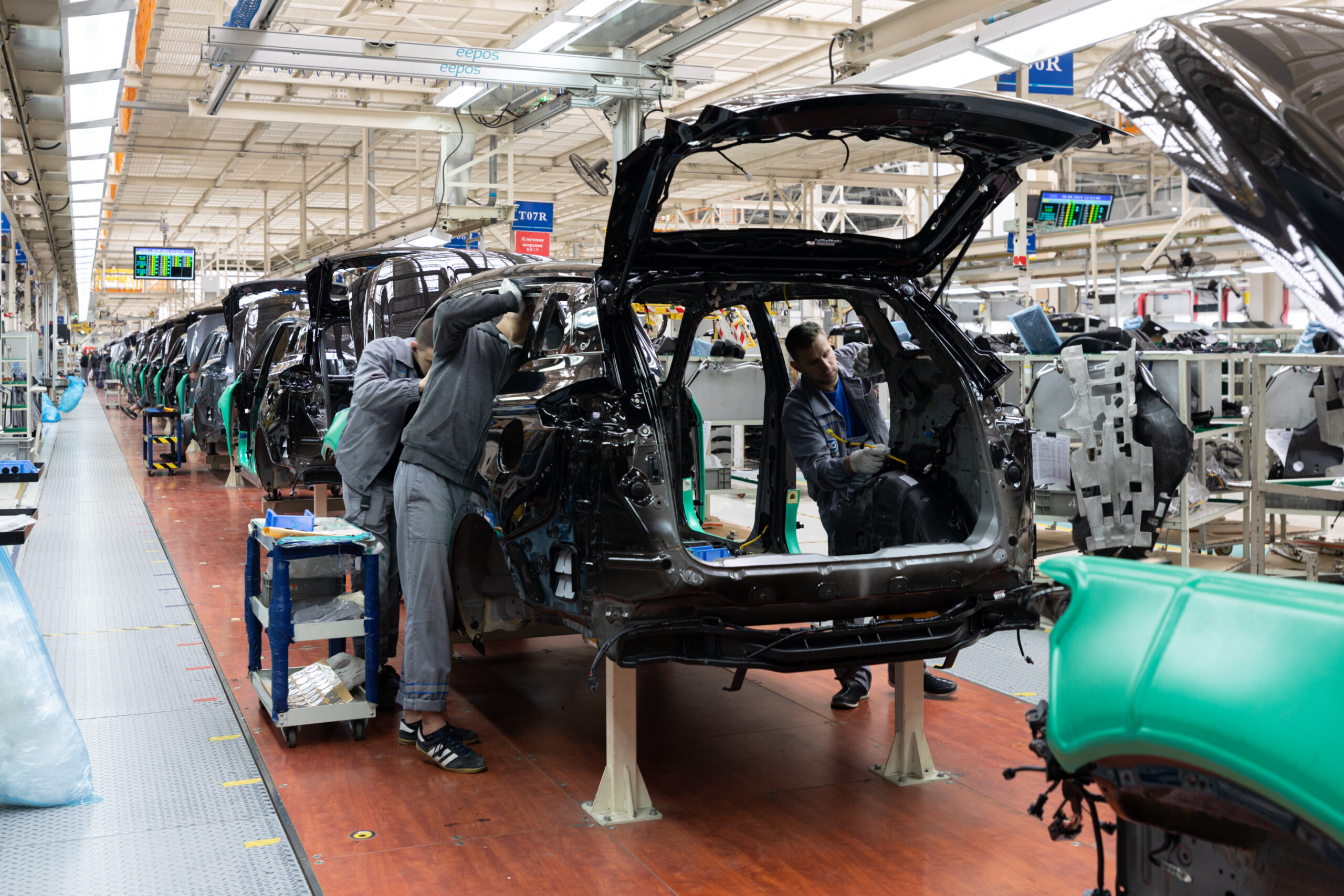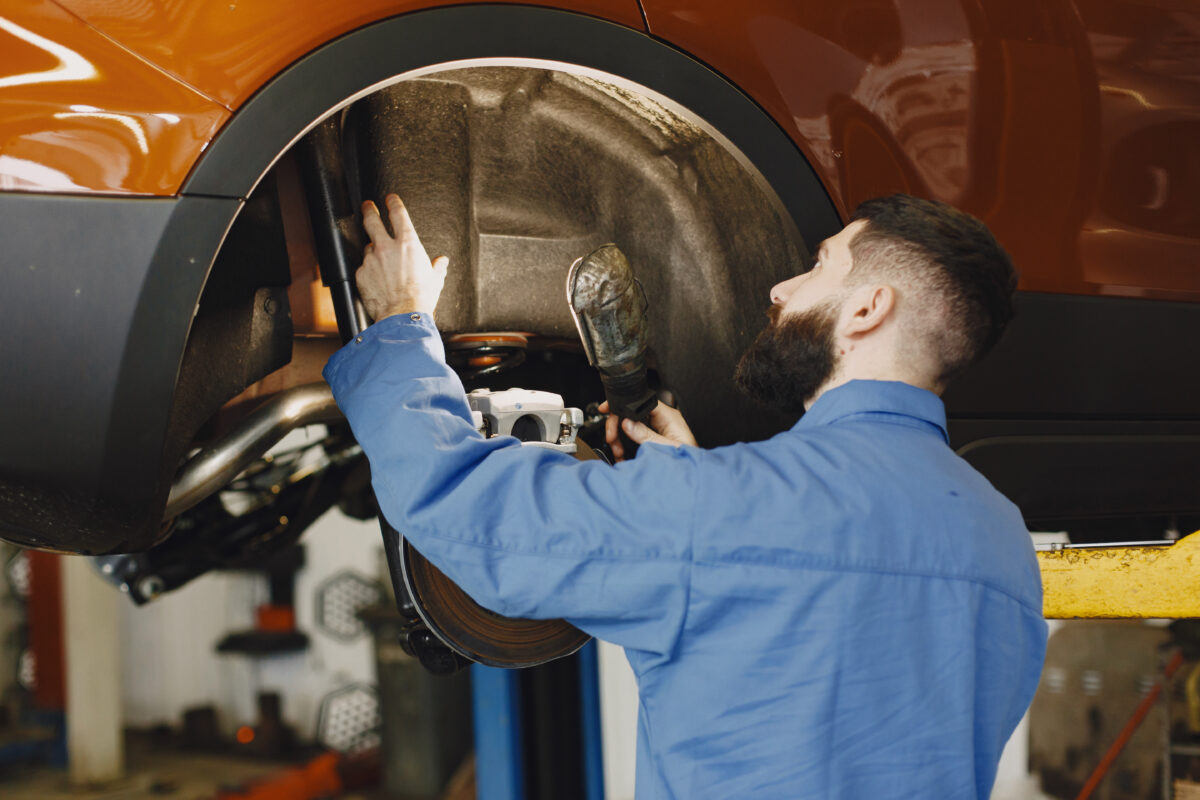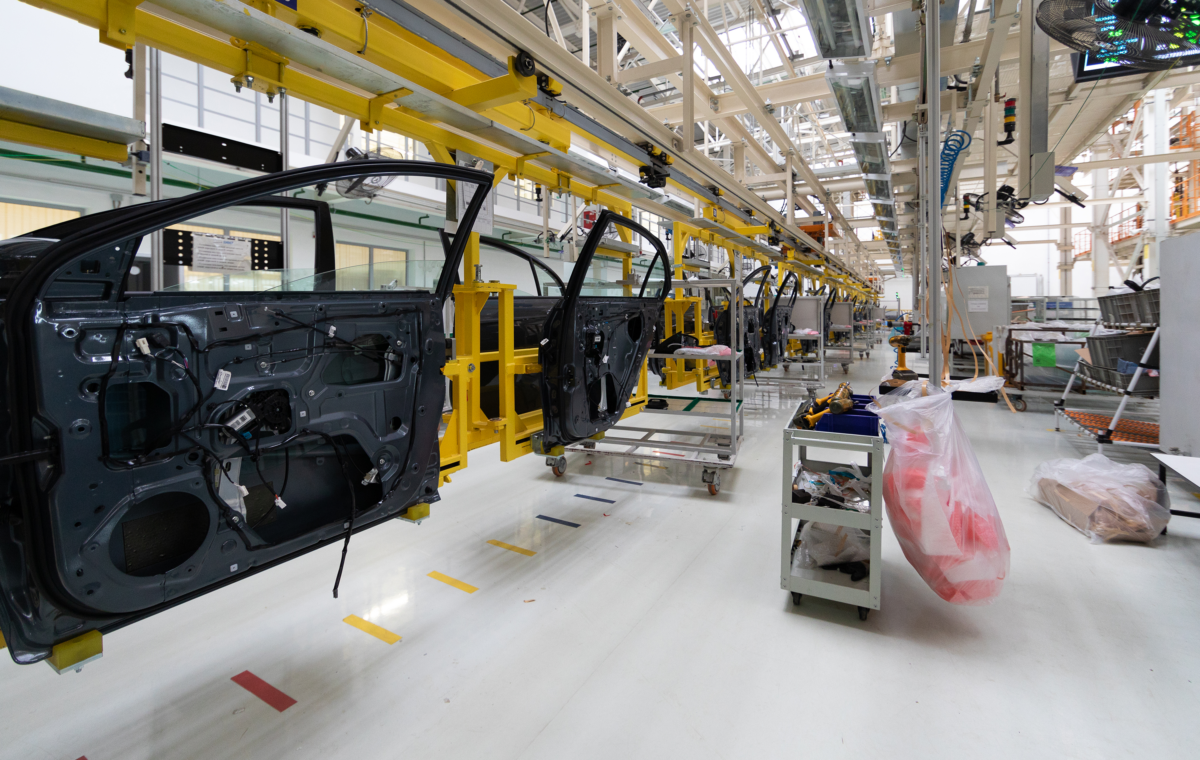Automotive manufacturers face numerous challenges from design to manufacturing, including managing complex supply chains, ensuring precision in assembly, meeting stringent safety and environmental regulations, and keeping up with rapid technological advancements like electric and autonomous vehicles.
Additionally, frequent design changes, tight production timelines, and the need for cost efficiency while maintaining high quality further complicate the process.
These challenges demand robust systems for seamless collaboration, real-time monitoring, and error-free execution throughout the entire lifecycle.
The automotive industry faces significant design challenges, including managing intricate BOMs, integrating advanced technologies like electric and autonomous systems, ensuring compliance with stringent safety and environmental standards, and accommodating frequent design changes while maintaining production efficiency.
PROMAI’s Gen addresses these challenges by automatically converting complex CAD designs into structured, executable manufacturing processes. It streamlines BOM management, ensures real-time validation of design updates, and generates precise, verifiable documentation for each step.
By bridging the gap between design and production, PROMAI’s Gen enables automotive manufacturers to reduce errors, accelerate time-to-market, and maintain regulatory compliance throughout the product lifecycle.


The automotive industry faces numerous assembly challenges, including managing complex workflows, ensuring precision in assembling thousands of interconnected parts, minimizing human error, and maintaining consistent product quality across production lines. Additionally, the industry must meet rigorous safety and performance standards while adapting to high variability in model designs and configurations.
PROMAI’s Shield addresses these challenges by providing real-time monitoring, error detection, and step-by-step, verifiable assembly instructions. It ensures that every assembly process is executed accurately and consistently, reduces rework by identifying potential errors early, and improves traceability for compliance and audits. This results in higher efficiency, reduced downtime, and superior product quality in automotive manufacturing.
The automotive industry faces significant supply chain challenges, including coordinating the timely delivery of thousands of components, adapting to unexpected delays, and ensuring optimal resource utilization on production lines.
PROMAI’s Shield addresses these issues by enabling dynamic scheduling, which automatically adjusts production tasks based on real-time supply chain conditions. Its ability to differ tasks between workstations ensures that available resources are utilized efficiently, minimizing downtime and preventing bottlenecks.
By maintaining flexibility in task allocation and ensuring synchronization with supply chain inputs, PROMAI’s Shield helps automotive manufacturers maintain production flow, meet deadlines, and improve overall operational efficiency.
The automotive industry’s supply chain is highly complex, involving numerous suppliers, global logistics, and tight production timelines. Manufacturers face challenges such as ensuring the timely delivery of parts, managing inventory accuracy, and maintaining quality control across a vast network.
PROMAI’s Field addresses these challenges efficiently by providing real-time monitoring of parts and components throughout the supply chain.
It ensures accurate tracking, seamless integration of supplier data, and immediate validation of incoming materials.
By enabling proactive issue resolution and reducing delays, PROMAI’s Field helps automotive manufacturers streamline operations, minimize disruptions, and maintain consistent production quality.

Before a robot can be delivered to the customer, it must undergo a thorough certification process.
This involves comprehensive testing to ensure compliance with safety, performance, and operational standards set by relevant regulatory authorities.
WizGen streamlines this process by automating the creation of checklists for all required tests, while WizShield ensures that each test is performed accurately and in full alignment with regulatory requirements.
At various stages of production, rigorous testing and quality assurance measures are implemented.
This includes non-destructive testing (e.g., X-ray inspection, ultrasonic testing) to ensure structural integrity, functional testing of systems and equipment, and overall performance testing.
Any issues or defects identified during testing are addressed and rectified.
machines and robots operators develop maintenance plans based on regulatory requirements, manufacturer recommendations, and their own maintenance programs.
These plans outline scheduled maintenance tasks, including routine inspections, preventive maintenance, and component replacements.
PROMAI’s WizGen automates the creation of maintenance, fault isolation procedures that are complete and validated.
Maintenance and fault isolation are crucial aspects of robotics production to ensure the safe and efficient operation of assembly lines.
Maintenance includes routine inspections, servicing, repairs, and the replacement of components to keep the manufacturing process in optimal condition.
Fault isolation, meanwhile, involves identifying and troubleshooting issues or malfunctions within the robotic systems or components.
Scheduled maintenance involves routine inspections and servicing at specified intervals.
This includes checks of systems, structures, engines, and other components to ensure they are functioning properly and within acceptable limits.
Regular maintenance tasks may include lubrication, filter replacement, fluid checks, and system functional tests.
Integrating WizShield tracks the different steps and alerts for any maintenance procedure that should be performed, Using WizOpt will maximize operation time of each robot component.
Unscheduled maintenance occurs when a robotic system encounters an unexpected issue or failure.
This could result from a system malfunction, component failure, or another unforeseen event. Technicians assess the problem, troubleshoot it, and perform the necessary repairs to restore the system to optimal working condition.
PROMAI’s WizSuite generates comprehensive fault isolation procedures, enabling quick identification and isolation of issues. This capability significantly reduces repair time, streamlining maintenance for the entire fleet.

Fault isolation in the automotive industry is a critical challenge due to the increasing complexity of modern vehicles, which integrate numerous advanced electronic, mechanical, and software-driven systems.
Identifying the root cause of faults often requires significant time and expertise, leading to production delays and increased costs.
PROMAI’s Field addresses these challenges by leveraging real-time data analysis and machine learning to quickly detect, isolate, and diagnose faults. Its intelligent fault isolation engine provides guided, step-by-step repair instructions, ensuring fast, accurate resolution. By streamlining the troubleshooting process, PROMAI’s Field minimizes downtime, reduces errors, and enhances overall production efficiency.
Once the fault is isolated, technicians use their expertise and technical manuals to diagnose the specific problem and develop a repair plan. This may involve replacing faulty components, adjusting settings, repairing wiring or connections, or recalibrating systems.
Technicians follow manufacturer guidelines and industry best practices to ensure accurate and effective repairs. PROMAI’s Field using the data aggregated by Gen assists in timely troubleshooting of any problem raises.


PROMAI resolves testing issues in industrial manufacturing by embedding measurable tests and verifiable checks at every step of the production process.
By integrating real-time, automated testing—ranging from non-destructive methods like X-ray and ultrasonic inspections to functional and performance tests—PROMAI ensures early detection of defects and process deviations. Each step is validated with precise metrics, enabling immediate issue resolution and guaranteeing the highest quality output.
This approach minimizes rework, reduces waste, and ensures seamless production flow with reliable, error-free results.
PROMAI’s Gen solution addresses the complexities of industrial robotics compliance documentation by automating the generation of precise, verifiable, and up-to-date records throughout the production process.
PROMAI’s Gen captures validated manufacturing data, including design specifications, test results, safety checks, and maintenance procedures, and transforms it into complete, structured compliance documentation.
This ensures that every regulatory requirement is met with minimal manual effort, reducing errors and streamlining the audit process.
By providing real-time, traceable documentation, PROMAI’s Gen ensures that companies maintain full compliance while accelerating production workflows and reducing operational costs.


visibility_offDisable flashes
titleMark headings
settingsBackground Color
zoom_outZoom out
zoom_inZoom in
remove_circle_outlineDecrease font
add_circle_outlineIncrease font
spellcheckReadable font
brightness_highBright contrast
brightness_lowDark contrast
format_underlinedUnderline links
font_downloadMark links